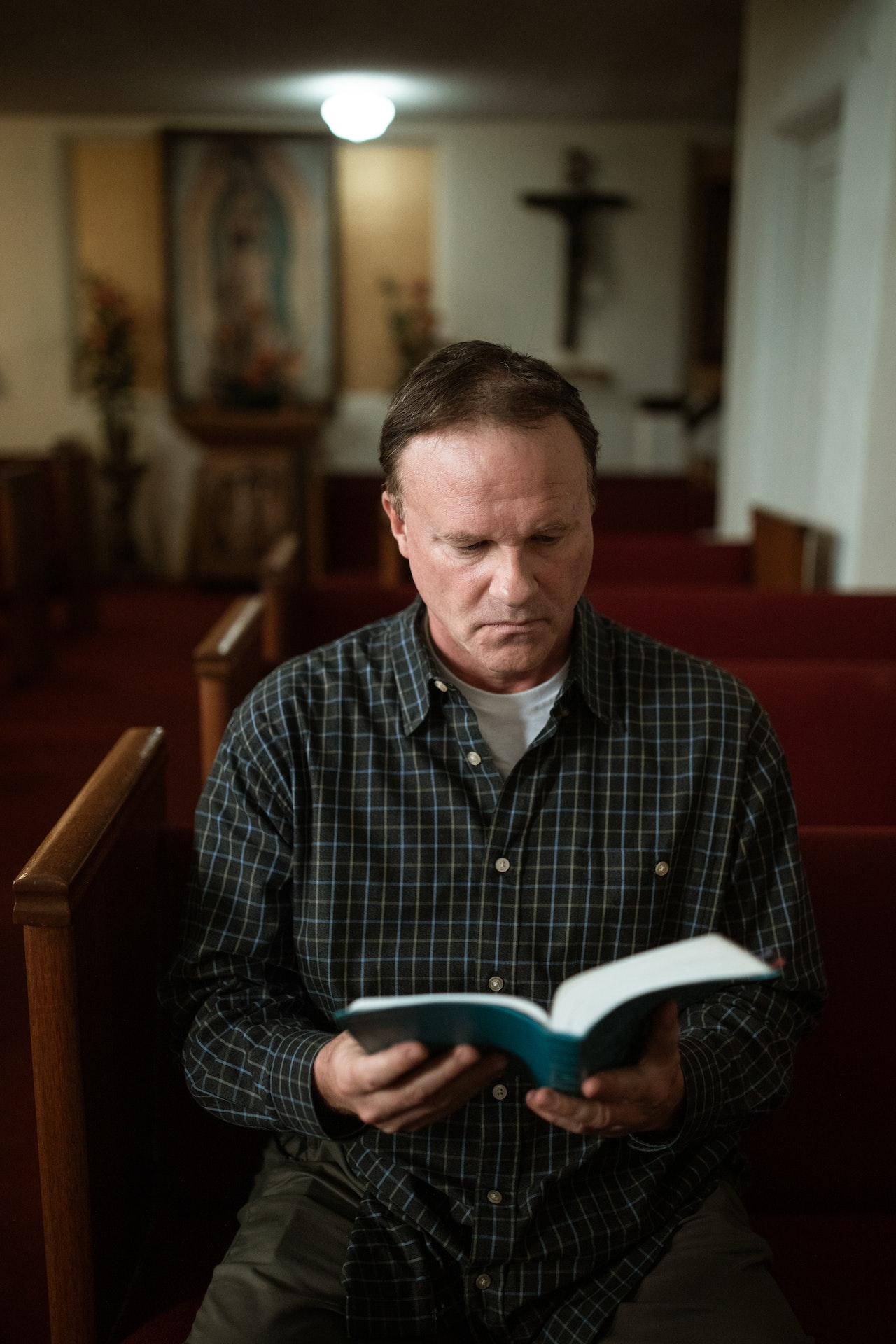Yes, Christians can be gay.
Table of Contents
Grace and Forgiveness: Understanding the Role of Forgiveness in Christianity
Forgiveness is a central tenet of Christianity, with the belief that God’s grace and mercy are extended to all who seek it. But what about forgiving others, especially when they have wronged us in some way? Can Christians truly embody forgiveness in their daily lives, even when faced with difficult situations or people who have hurt them?
The answer is a resounding yes. Christians are called to forgive others, just as God has forgiven them. This doesn’t mean that forgiveness is always easy or that it happens overnight. It can be a process that takes time and effort, but it is essential for living out the teachings of Jesus Christ.
One of the key passages in the Bible that speaks to forgiveness is found in Matthew 6:14-15, where Jesus says, “For if you forgive other people when they sin against you, your heavenly Father will also forgive you. But if you do not forgive others their sins, your Father will not forgive your sins.” This passage highlights the importance of forgiveness in the Christian faith and emphasizes the reciprocal nature of forgiveness – as we forgive others, we are also forgiven by God.
Forgiveness is not about excusing or condoning the actions of others. It is about releasing the hold that anger, resentment, and bitterness have on our hearts. When we choose to forgive, we free ourselves from the burden of carrying around negative emotions and allow God’s grace to work in our lives.
But what about forgiving those who have committed heinous acts or caused us deep pain? Can Christians truly forgive in these situations? The answer is still yes. While forgiveness does not mean forgetting or minimizing the harm that has been done, it does mean choosing to let go of the desire for revenge or retribution and instead extending grace and mercy to those who have wronged us.
In Colossians 3:13, the apostle Paul writes, “Bear with each other and forgive one another if any of you has a grievance against someone. Forgive as the Lord forgave you.” This verse reminds us that forgiveness is a choice we make, not based on the actions of others, but on our own commitment to following the example of Christ.
Forgiveness is a powerful act that can bring healing and restoration to relationships that have been broken. It is not always easy, and it may require us to confront our own feelings of hurt and anger. But when we choose to forgive, we open the door to reconciliation and peace.
As Christians, we are called to be agents of grace and forgiveness in a world that is often filled with conflict and division. By extending forgiveness to others, we demonstrate the transformative power of God’s love and mercy. We show that reconciliation is possible, even in the most difficult circumstances.
So, can Christians be forgiving? Absolutely. Forgiveness is at the heart of the Christian faith, and it is a powerful tool for healing and reconciliation. As we strive to embody the teachings of Jesus Christ, let us remember the importance of forgiveness in our relationships with others. Let us choose to extend grace and mercy, just as God has done for us.
Navigating the Challenges of Living Out Your Faith in a Secular World
Living out your faith as a Christian in a secular world can be challenging. The values and beliefs of society often clash with those of Christianity, leading to feelings of isolation and confusion. However, it is possible to navigate these challenges and remain true to your faith.
One common struggle that Christians face in a secular world is the pressure to conform to societal norms. It can be tempting to go along with the crowd and compromise your beliefs in order to fit in. However, as a Christian, it is important to stand firm in your faith and not be swayed by the opinions of others. Remember that your identity is found in Christ, not in the approval of those around you.
Another challenge that Christians may encounter is the temptation to compromise their values in order to achieve success or acceptance. In a world that values material wealth and personal gain, it can be easy to prioritize these things over your faith. However, as a Christian, it is important to remember that true success comes from following God’s will and living according to His word.
One way to navigate these challenges is to surround yourself with a strong community of fellow believers who can support and encourage you in your faith. By building relationships with other Christians, you can find strength and accountability to help you stay true to your beliefs in the face of opposition.
It is also important to regularly engage with scripture and prayer in order to deepen your relationship with God and stay grounded in your faith. By spending time in God’s word and seeking His guidance through prayer, you can find the strength and wisdom to navigate the challenges of living out your faith in a secular world.
Additionally, it is important to approach interactions with non-believers with love and grace. While it can be difficult to engage with those who do not share your beliefs, it is important to remember that all people are made in the image of God and deserve to be treated with respect and kindness. By showing love and grace to those around you, you can be a positive witness for Christ and demonstrate the transformative power of His love.
Ultimately, living out your faith as a Christian in a secular world requires courage, perseverance, and a deep reliance on God. By staying true to your beliefs, surrounding yourself with a supportive community, engaging with scripture and prayer, and approaching others with love and grace, you can navigate the challenges of living out your faith in a secular world. Remember that you are not alone in this journey – God is with you every step of the way, guiding and empowering you to live out your faith boldly and authentically.
Exploring the Intersection of Faith and Mental Health for Christians

Mental health is a topic that is often overlooked in Christian circles. There is a stigma surrounding mental illness, with some believing that it is a sign of weakness or lack of faith. However, the reality is that mental health issues can affect anyone, regardless of their religious beliefs. So, can Christians be ga?
The short answer is yes. Christians can struggle with mental health issues just like anyone else. In fact, studies have shown that Christians are just as likely to experience mental health problems as the general population. Depression, anxiety, and other mental illnesses do not discriminate based on religious beliefs.
It is important for Christians to understand that struggling with mental health does not mean that they lack faith or are somehow less of a Christian. Mental illness is a medical condition that requires treatment, just like any other illness. Seeking help from a mental health professional is not a sign of weakness, but rather a sign of strength and self-care.
In the Bible, we see examples of individuals who struggled with their mental health. King David, for example, wrote many of the Psalms while he was experiencing deep emotional distress. In Psalm 42, he writes, “Why, my soul, are you downcast? Why so disturbed within me? Put your hope in God, for I will yet praise him, my Savior and my God.” This passage shows that even the most faithful individuals can experience feelings of sadness and despair.
As Christians, it is important to remember that we are not alone in our struggles. God is always with us, ready to offer comfort and support. Prayer can be a powerful tool in coping with mental health issues, as it allows us to connect with God and seek His guidance and strength.
In addition to prayer, seeking support from fellow believers can also be beneficial. Joining a small group or talking to a pastor or counselor can provide a safe space to share your struggles and receive encouragement and understanding. It is important to remember that mental health is not something to be ashamed of, and reaching out for help is a brave and important step towards healing.
It is also important for Christians to take care of their physical health in order to support their mental well-being. Eating a balanced diet, getting regular exercise, and getting enough sleep are all important factors in maintaining good mental health. Taking time for self-care and engaging in activities that bring joy and relaxation can also help to reduce stress and improve overall well-being.
In conclusion, Christians can absolutely be ga. Mental health is a complex issue that can affect anyone, regardless of their religious beliefs. It is important for Christians to seek help when needed and to remember that struggling with mental health does not make them any less of a Christian. By seeking support from God, fellow believers, and mental health professionals, Christians can find healing and hope in the midst of their struggles.
Debunking Common Misconceptions About Christianity and LGBTQ+ Inclusivity
When it comes to the intersection of Christianity and LGBTQ+ inclusivity, there are often misconceptions and misunderstandings that can lead to division and hurt within both communities. One common misconception is that Christians cannot be supportive of LGBTQ+ individuals, but this belief is not accurate. In fact, there are many Christians who are not only accepting of LGBTQ+ people but also actively advocate for their rights and inclusion within the church.
One of the main reasons for this misconception is the misinterpretation of certain Bible verses that are often used to condemn homosexuality. However, it is important to remember that the Bible was written in a specific cultural and historical context, and that interpretations of these verses can vary widely among different Christian denominations. Many Christians believe that the overarching message of the Bible is one of love, compassion, and acceptance, and that these values should be extended to all individuals, regardless of their sexual orientation or gender identity.
In recent years, there has been a growing movement within Christianity to promote LGBTQ+ inclusivity and acceptance. Many churches and religious organizations have taken steps to welcome LGBTQ+ individuals into their communities, and to affirm their identities and relationships. Some churches have even gone so far as to perform same-sex marriages and ordain LGBTQ+ clergy members, signaling a shift towards greater inclusivity and acceptance within the Christian faith.
It is also important to recognize that LGBTQ+ individuals can be Christians themselves, and that their identities are not mutually exclusive. There are many LGBTQ+ Christians who find strength and solace in their faith, and who see no conflict between their sexual orientation or gender identity and their religious beliefs. These individuals often find support and community within affirming churches and religious organizations that welcome and embrace them for who they are.
Despite these positive developments, there are still many challenges and obstacles that LGBTQ+ individuals face within the Christian community. Discrimination, exclusion, and judgment are still prevalent in some churches and religious circles, making it difficult for LGBTQ+ individuals to fully participate and engage in their faith. It is important for Christians to continue to educate themselves about LGBTQ+ issues, to challenge harmful stereotypes and beliefs, and to advocate for greater inclusivity and acceptance within their communities.
Ultimately, the question of whether Christians can be LGBTQ+ allies is not a simple yes or no answer. It is a complex and nuanced issue that requires empathy, understanding, and a willingness to engage in difficult conversations. By listening to the experiences and perspectives of LGBTQ+ individuals, by challenging harmful beliefs and attitudes, and by working towards greater inclusivity and acceptance, Christians can play a vital role in creating a more welcoming and affirming environment for all members of their community.
In conclusion, Christians can and should be LGBTQ+ allies, and there is a growing movement within the Christian community to promote inclusivity and acceptance for all individuals, regardless of their sexual orientation or gender identity. By embracing the values of love, compassion, and acceptance that are central to the Christian faith, Christians can help to create a more inclusive and welcoming environment for LGBTQ+ individuals within their communities.
The Importance of Community and Fellowship in Strengthening Your Christian Faith
Have you ever wondered if Christians can be gamers? The answer is a resounding yes! In fact, many Christians enjoy playing video games as a way to relax, unwind, and connect with others. While some may argue that gaming is a waste of time or promotes violence, there are actually many benefits to gaming for Christians.
One of the key benefits of gaming for Christians is the opportunity to build community and fellowship with others. In today’s fast-paced world, it can be difficult to find time to connect with others in person. However, gaming provides a unique platform for Christians to come together, bond over shared interests, and support one another in their faith journey.
When Christians play games together, they can engage in friendly competition, strategize together, and even pray for one another. This sense of camaraderie can help strengthen their relationships with one another and with God. Additionally, gaming can provide a fun and lighthearted way for Christians to connect with non-believers and share their faith in a non-threatening manner.
Another benefit of gaming for Christians is the opportunity to practice virtues such as patience, perseverance, and teamwork. Many games require players to work together to achieve a common goal, which can help Christians develop important life skills and character traits. By overcoming challenges and obstacles in games, Christians can learn to trust in God’s plan for their lives and rely on Him for strength and guidance.
Furthermore, gaming can be a form of creative expression for Christians. Many games feature intricate storylines, stunning visuals, and complex gameplay mechanics that can inspire players to think critically, problem-solve, and think outside the box. By immersing themselves in these virtual worlds, Christians can explore new ideas, perspectives, and cultures that can enrich their faith and broaden their understanding of God’s creation.
Of course, like any form of entertainment, gaming should be enjoyed in moderation and with discernment. Christians should be mindful of the content of the games they play and ensure that it aligns with their values and beliefs. Additionally, Christians should prioritize real-life relationships and responsibilities over gaming and make time for prayer, Bible study, and worship.
In conclusion, Christians can absolutely be gamers! Gaming can be a fun, engaging, and meaningful way for Christians to build community, practice virtues, and express their creativity. By approaching gaming with a spirit of discernment and moderation, Christians can enjoy all the benefits that gaming has to offer while staying true to their faith. So grab your controller, invite some friends over, and let the gaming begin!
Conclusion
Yes, Christians can be gay.
For licensing reasons, we must provide the following notice: This content was created in part with the help of an AI.


